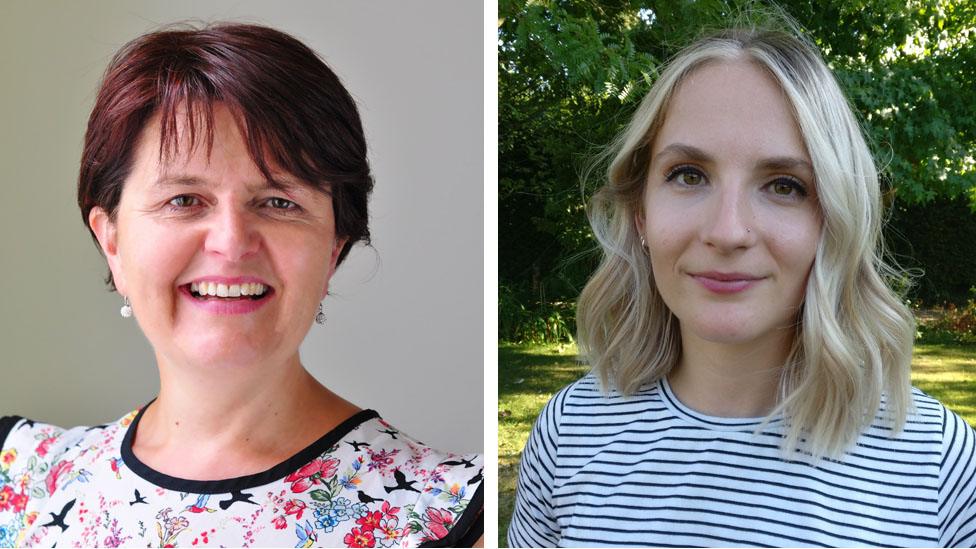A-level results 2018: 'I didn't know black people went to Cambridge'
- Published
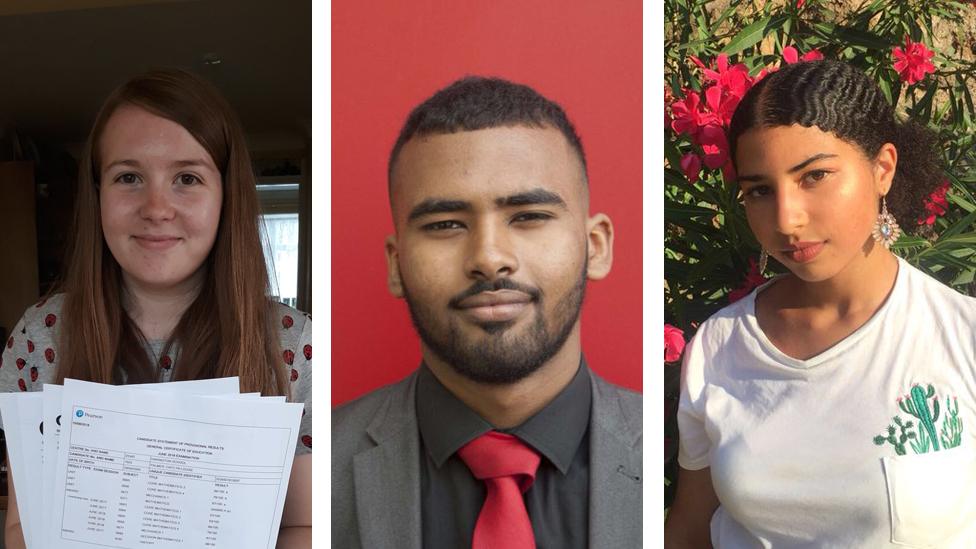
A-level students in England, Wales and Northern Ireland have achieved the highest proportion of A* and A grades since 2012.
Among those who opened their results are a young woman advised by her teachers not to apply for the top university course at which she has now gained a place and a young man who will study English, 15 years after he arrived in Britain "terrified" because he couldn't speak the language.
The BBC spoke to a selection of students who are celebrating.
'I didn't know black people went to Cambridge'
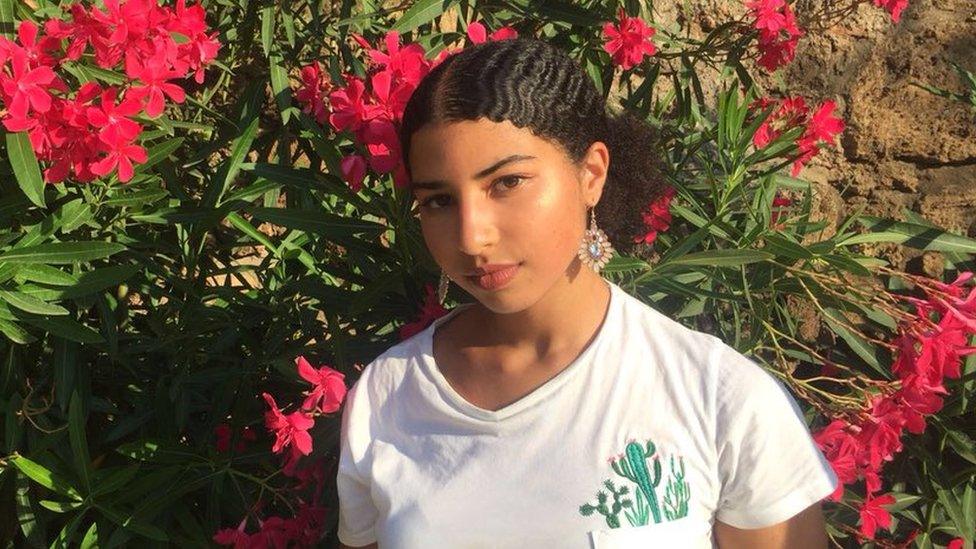
For Daniella Adeluwoye, from London, the news that she has attained a place at the University of Cambridge to study human, social and political science has brought both elation and trepidation.
"I am ecstatic. I'm really worried though," she told the BBC.
The 18-year-old will become the first member of her immediate family to head to university after excellent results in English, politics and history.
"It's going to be like going to school in a parallel world," she said.
"My mum works in a supermarket and my dad's a teaching assistant. I work in a fish and chip shop.
"I've always come across very different people and it's going to be amplified in first year."
Allow X content?
This article contains content provided by X. We ask for your permission before anything is loaded, as they may be using cookies and other technologies. You may want to read X’s cookie policy, external and privacy policy, external before accepting. To view this content choose ‘accept and continue’.

After "average" GCSE results, teachers at Daniella's school in Wood Green advised her not to apply for the course. But watching videos by YouTubers like Courtney Daniella - a beauty blogger and Cambridge University student - had already made up her mind.
"I didn't know black people went to Cambridge," Daniella said.
"I saw it on my recommended YouTube list in Year 10. I thought, 'that could be me in two years' time'."
'I didn't learn to speak English until five years ago'
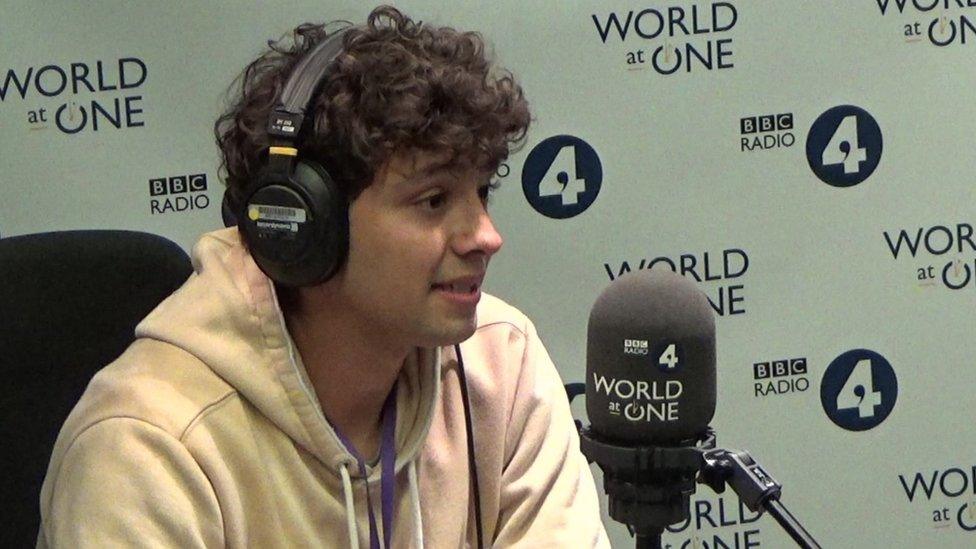
In little more than a month's time, Eduardo Estevez will start a degree in biological sciences at University of Oxford. The student is celebrating A*s in maths and biology and an A in French. Five years ago, he couldn't speak English.
"I'm Spanish-born, Colombian-raised, living in south-east London," he told BBC Radio 4s World at One programme.
"I moved here around seven years ago but didn't really learn to speak the language until about five years ago."
Eduardo said the support of his school and hard work had been essential in helping him to achieve those grades.
"The support from Ark Globe Academy to push students that have English as their additional language was key for me," he said.
"I wasn't performing at first. I was in lower sets. It wasn't just because I didn't know the content, it was because I didn't know the language.
"Sometimes when you can't speak English, you're undermined and you're thought to be not as good as the rest."
'No student should have to rely on medication'
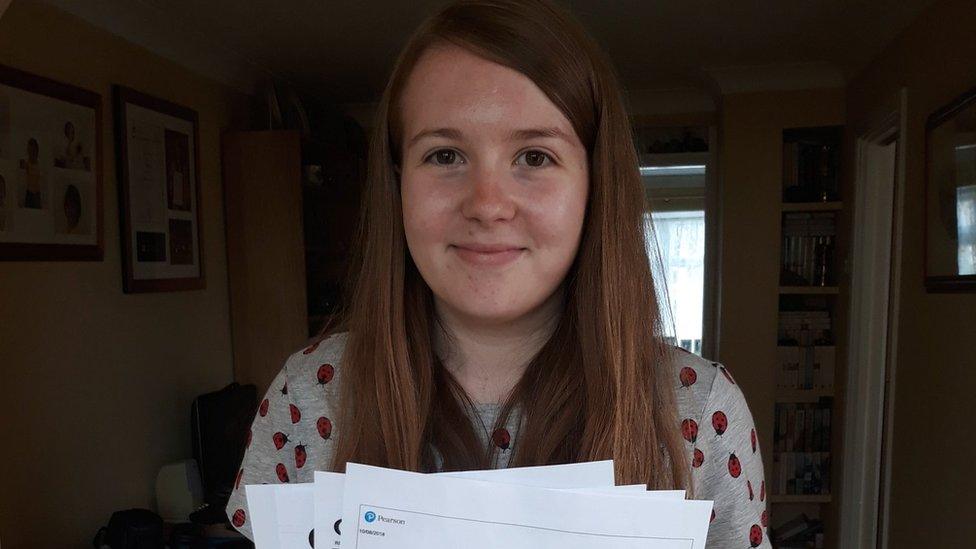
Caitlyn Palmer achieved four A-Levels of A* or A despite struggling with depression
Caitlyn Palmer, from Rutland, is celebrating A*s in English and extended project, alongside As in history and maths. She has gained a place at the University of York to study history, but it's been a difficult two years.
Allow X content?
This article contains content provided by X. We ask for your permission before anything is loaded, as they may be using cookies and other technologies. You may want to read X’s cookie policy, external and privacy policy, external before accepting. To view this content choose ‘accept and continue’.

"I struggled with stress quite a lot at GCSE," she said.
"I was diagnosed with anxiety at the start of Year 12 and this developed to me being diagnosed with depression in Year 13. A-levels have been very hard for me.
"I struggled to find any hope as to completing my course. The stress placed on students is completely unfair."
Caitlyn said her sixth form was "supportive" and the head of pastoral care there "amazing".
"If I felt this way, I can't imagine how others feel," she said. "I've been on numerous different anti-anxiety and anti-depressant drugs throughout this period as well. No student should have to rely on medication to survive two years of study and exams."
Caitlyn says that being open and honest about her problems helped her to do as well as she did. Her teachers - "so supportive... always there as an outlet" - encouraged her to seek medical help when she "didn't want to admit something was wrong".
'A weight off my shoulders'
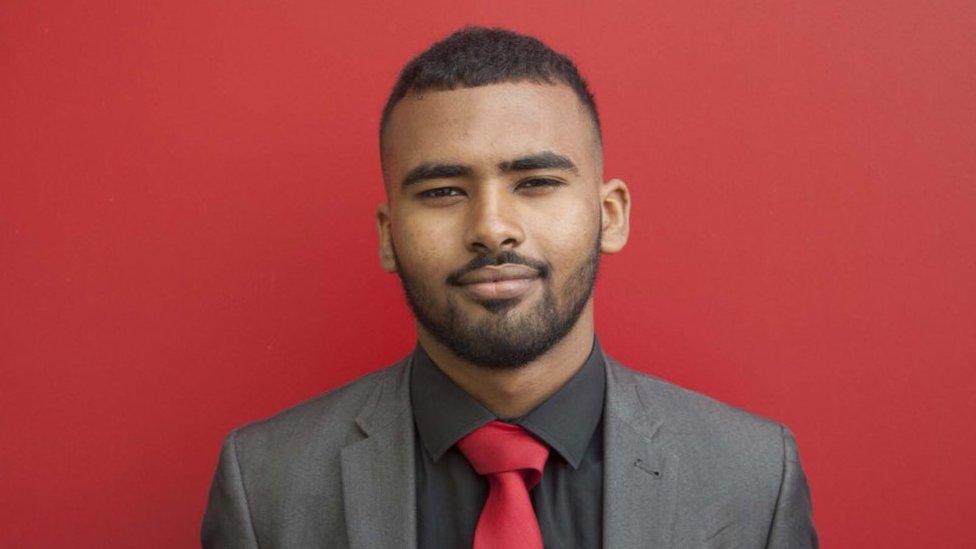
Mohamed Dini Munye Abrar, who lives in London, has secured a place at University of Oxford to study English literature. The 18-year-old, who came to Britain from Kenya with his family when he was three, said his results were "a big relief".
Allow X content?
This article contains content provided by X. We ask for your permission before anything is loaded, as they may be using cookies and other technologies. You may want to read X’s cookie policy, external and privacy policy, external before accepting. To view this content choose ‘accept and continue’.

"It's a weight off my shoulders," he said.
"I'm having dinner with my family to celebrate and then I'll see what happens."
Mohamed mentors students in literacy at his school - Mossbourne Community Academy, in Hackney.
"It's also a great boost for a lot of the young kids I mentor at my school," he said.
"It's important for them to see someone who looks like them do well, someone who is black and working class."



- Published16 August 2018
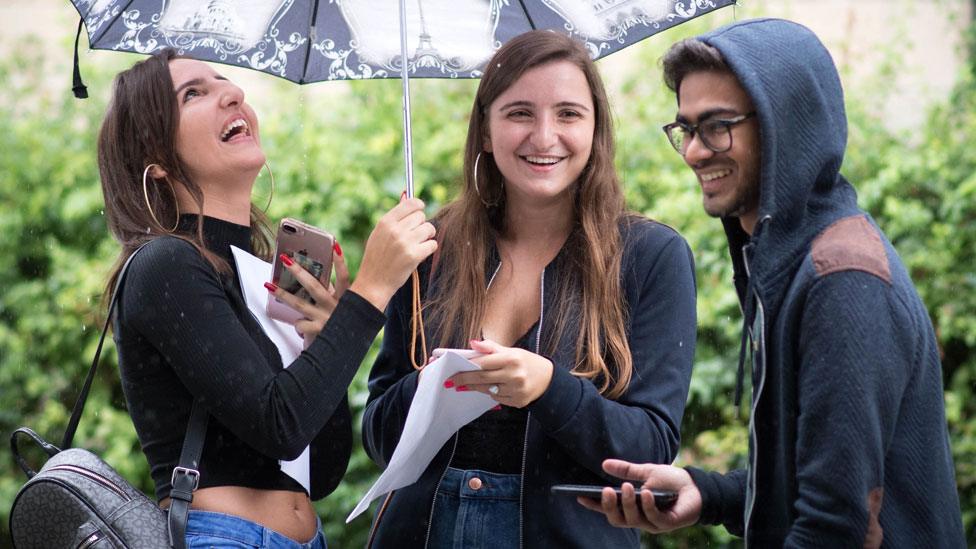
- Published16 August 2018
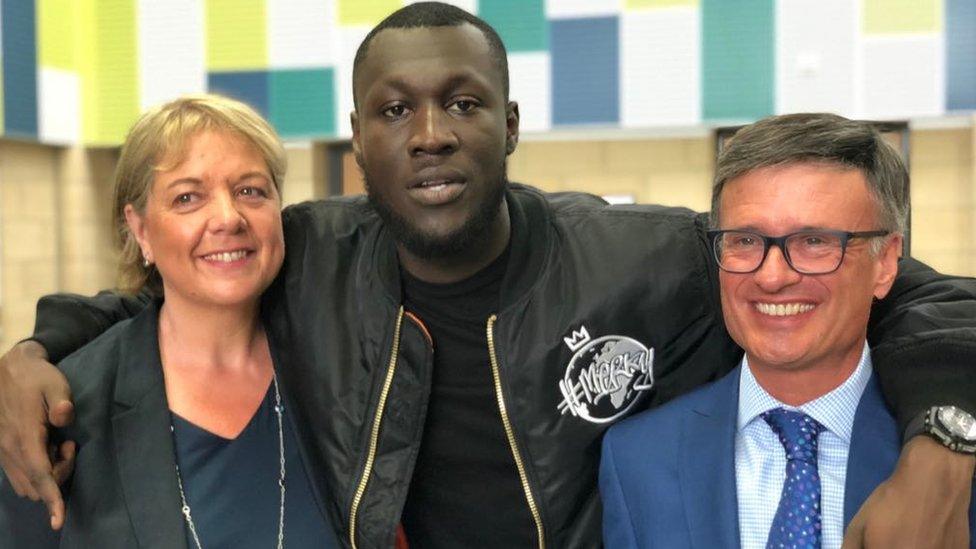
- Published16 August 2018
